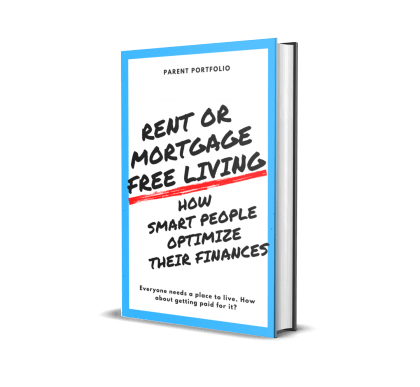Why is Canadian Real Estate so Expensive | Little Known Ways to Explore

Why is Canadian real estate so expensive? Housing in Canada is so expensive because there is more demand for homes than there is offered. However, low-interest rates, immigration, and the increased inflow of foreign money into the country make this possible. These are all factors that have contributed to the increase in property values in Canada in recent years.
Canada relies heavily on the real estate sector, which accounts for about 12% of the country’s GDP. Despite this, there is a high demand for housing, a shortage of available houses and apartments, expensive because the demand for housing exceeds the supply.
As a result, Canadian real estate is much more expensive than American real estate. In certain areas, there are even taxes that make them even more expensive for Americans.
One of the surprising things that Americans discover is how expensive Canadian real estate is—especially when compared to U.S. real estate. For example, in Canada, the typical benchmark home costs $352,076, while in the United States; the average home costs $234,200. This represents a 50% increase in the price of the median home across the country.
When comparing urban regions, the trend is even greater. A home in Toronto costs $566,719; the median home in Chicago costs $214,400. That’s a 164% increase, double the price. More high-rises are being built in Toronto; than anywhere else in North America.
Factors influencing Canadian Real Estate Prices

Foreign effect
Foreign investors are another reason why housing prices will grow in the long term. This is because they have huge sums of money; to invest in homes, which they will then resell for a higher profit.
This increases rivalry; they must compete against enormous wealth from outside their nation. High-value investors; can buy up all the lower-value housing alternatives, removing them from the market of people who cannot afford the remaining expensive ones. Buyers with this attitude; believe they must offer more money and do it fast to outbid other bidders.
Demand and offer of real estate in Canada
Real estate is one of the most important sectors in Canada; the need for housing is growing, but there is never enough of it. There is a lot of development in terms of new real estate. However, when a city’s housing supply is insufficient, it becomes a bidding war for homes that are not worth what they offer from the beginning.
Due to the shortage of affordable alternatives, many potential buyers must engage in bidding wars for those homes to outbid their rivals.
Low-interest rates on real estate loans
The Bank of Canada said it is considering another interest rate cut due to the weakness of the Canadian economy. This would cause the market to open up to buyers, pushing Toronto prices to new highs.
When consumers buy more, there are fewer inventories. So, low-interest rates are beneficial to the real estate market, especially if you are a seller.
Five of Canada’s largest banks have reduced their monthly mortgage rates to attract customers. The last thing the market needs right now is regulations, tightening things up in real estate in the long run, either by limiting supply or increasing demand.
Real Estate Fees and Taxes
From 2004 to the present, development fees have increased approximately 878%, adding at least $150,000 to the average price of a new construction condo. So naturally, developers are often excited to find out how much their permit fees will be. However, suppose they go for an application.
In that case, these costs get passed on at the end of construction and into renting or buying property in that area – which can dramatically affect developers’ bottom line if it’s not worth what people say!
When a real estate transaction closes, land transfer taxes are also paid to the province, on top of about $54,000 for an average single-family home in Toronto.
Property taxes will not impact the price of a home. However, those who can afford it will be limited based on their long-term financial situation, estimated at thousands of dollars each year, about the average single-family home in the city, which currently sells for about $1.52 million on average.
However, you want to buy a home in British Columbia. You will have to pay a 15% tax for foreign buyers. The typical benchmark home in Vancouver costs $682,834. In addition, you will have to pay a foreign buyer’s tax of $102,425.
Yes, the cost of buying property in Vancouver includes a tax that is more than half the cost of buying a new place to live in Chicago. If any other province imposes a foreign buyer tax, it will likely be in the same order.
Canadian Real Estate Market Considerations

- Over the past two decades, Canadian real estate has been one of the best-performing asset classes. It is up 31.6% in the last year, the largest annual gain on record. The market has been heating up for most first-time homeowners throughout their adult lives.
- This market is definitely in a bubble based on fundamentals, showing indicators it may be about to collapse.
- The basis of residential real estate valuation is the income of local households. The real estate market overvalues if households can barely afford their mortgage or rent. Meanwhile, the average Canadian home is 22% more expensive to buy than to rent. By these standards, Canada has some of the most expensive homes in the industrialized world.
- Interest rates, at their lowest point, are an obvious cause of this overvaluation. Some lenders are now offering a five-year variable rate of 0.99 percent, which is extremely low. Nonetheless, the number of home sales and mortgage applications has recently decreased.
- In other words, despite low-interest rates, buyer demand has peaked.
- Prices could remain high for many years to come. Real estate investment trusts (REITs), however, have limited upside and face greater risks.
- A rebound in the rental market could increase dividend yields, although this will be partly offset by rising inflation. Inflation currently stands at 3.6% y/y and is expected to rise further in the coming months.
- Sales have stagnated; despite record-low lending rates, which may indicate that upside travel is limited.
Frequently Asked Questions
Are homes in Canada more expensive than homes in the United States?
In Canada, the typical benchmark home costs C$474,000 ($352,076), while in the United States; the average home costs C$315,303 ($234,200). This represents a 50% increase in the price of the median home across the country. However, when comparing urban regions, the trend is much more pronounced.
Why are homes cheaper in the United States than in Canada?
In the U.S., offer and demand are in a great balance if you compare them to Canada.
Is Canadian real estate overvalued?
According to CMHC, Canada’s housing market is overheated, overvalued, and at risk of crashing. The Canadian Housing Agency has issued a warning that the country’s housing market is on the verge of a recession, as home prices in most Ontario, Montreal, and Atlantic Canada markets continue to rise.
Why is everything so expensive in Canada?
The excess demand is because Canadian incomes are holding up quite well despite the COVID crisis.
Is it cheaper to live in Canada or the United States?
In general, living in a Canadian metropolitan city is less expensive than living in the United States. But, of course, this depends on the location in question, as well as its tax bracket.
Bottom Line
At this point, we have everything related that answers the intrigue; why Canadian real estate is so expensive using this material in an orderly and concrete way; will allow step by step fulfilling the established purposes.
In addition, you have a guide that clarifies doubts, generating concrete answers regarding the cost of real estate in Canada. Canada is one of the best places in the world to live.
However, it can be difficult to find a cheap property due to supply and demand issues, low mortgage rates, foreign investors, and immigration fees. We hope this list of reasons Canadian real estate is so expensive will help you determine your future housing needs.






